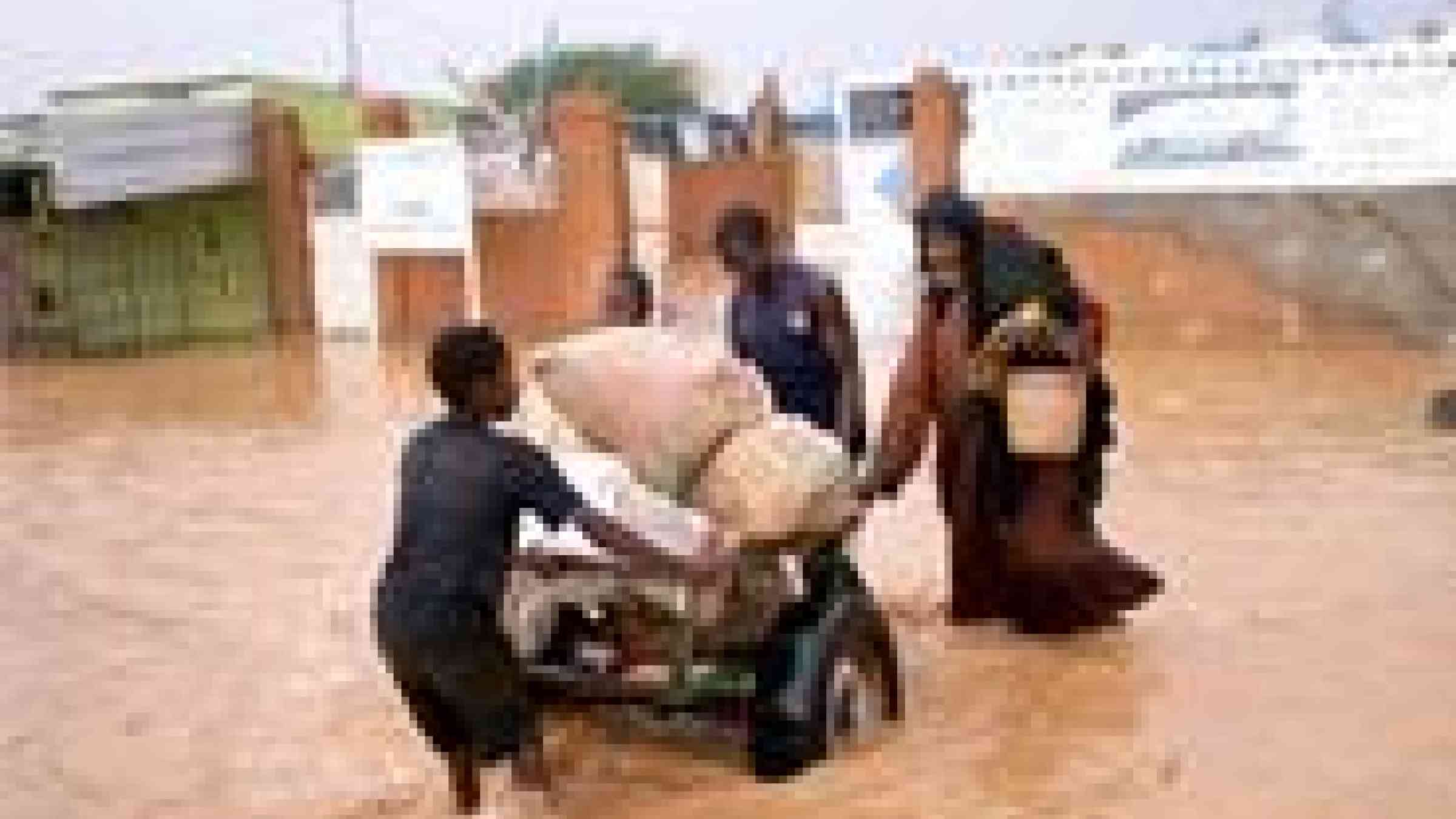
Doha - In a formal letter to Qatar - host of the 18th conference of the parties to the UN Framework Convention on Climate Change (UNFCCC) - a coalition of 40 NGOs, backed by academics, has called for urgent action on loss and damage caused by climate change. The NGOs have drawn up a framework to help country negotiators address the contentious issue.
The proposed framework opens the door for developing countries to possibly receive compensation for losses and damages that are incurred when efforts to mitigate and adapt to climate change have failed.
Policy frameworks provided by NGOs have proven handy in past climate change talks. In 2010, a framework put together by a similar coalition of NGOs paved the way for the adoption of the Cancun Adaptation Framework; this was a significant breakthrough for developing countries and NGOs trying to draw attention to the need to adapt to climate change.
Key objectives
Two key objectives of the framework are: the prevention of loss and damage through mitigation and adaptation efforts, and compensation and rehabilitation following the occurrence of loss and damage. These objectives receive equal footing in the document.
“We don’t want the UNFCCC process to give up on mitigation and adaptation, hence our equal emphasis. We have to keep the cost of loss and damage down,” explained Harjeet Singh of ActionAid, one of the contributors to a briefing paper on the framework.
The paper was compiled by Doreen Stabinsky, of the College of the Atlantic. Input was provided by ActionAid’s Singh, Kit Vaughan of Care International, and Sandeep Chamling Rai and Joanna Phillips of the World Wide Fund for Nature.
“We also don’t want to emphasize economic losses only, which can be quantified. We have to consider the non-economic losses, such as the loss of ecosystems, cultural heritage, values, and local and indigenous knowledge,” said Singh.
The third key objective is coordination among various global and regional institutions to deal with the migration, displacement and planned relocation that will occur as livelihoods, homes and productive land are lost to climate change.
Compensation
The briefing paper deals with the controversial issue of compensation head-on.
Various academics have described climate change litigation as the next big target for practitioners of environmental law, after tobacco, asbestos and food. The briefing cites several legal papers on the issue, pointing out that international human rights law provides the strongest legal foundation for the “moral duty of developed states to put dangerous climate change to a halt and enable injured states to mitigate the threat to the rights of their citizens.”
The “no-harm rule” or “principle of prevention” - a widely recognized principle of customary international law whereby a country is duty-bound to prevent, reduce and control the risk of environmental harm to other states - makes the case for compensation.
It quotes the International Law Commission as saying, “Once a breach [of the no-harm rule] has been established, the offending state must cease the act and make ‘full reparation’ for injury caused, including for ‘any damage, whether material or moral’.” Full reparation “shall take the form of restitution, compensation and satisfaction, either singly or in combination”.
The NGOs suggest the UNFCCC Conference of the Parties set up a two-year work programme to design the modalities of an International Mechanism on Compensation and Rehabilitation for both unavoided and unavoidable loss and damage. In the coming months, the proposed programme should do a comprehensive review of the kind of insurance and risk-transfer approaches available.
It should also review existing compensation funds such as the Oil Pollution Compensation Funds, which are three intergovernmental organizations that provide compensation for oil spills in any of its member states. The money for the funds is provided by entities that receive certain types of oil by sea transport.
The programme should also consider options to make up for non-economic losses; this could be done through external support for improved social protection.
“We are also asking for debt relief and other financial measures, especially for the least developed countries when they face catastrophic loss,” said Singh.
In other words, the countries’ capacity to adapt needs to be addressed, added Care’s Vaughan.
Beyond adaptation
The proposed framework’s recommendations for preventing loss and damage emphasize disaster risk reduction, continued focus on adaptation and efforts to manage risk.
Continued research into slow-onset events - such as droughts and how they cause situations “beyond adaptation” - are also needed, the NGOs say.
With climate change talks running into their second week, the International Energy Agency (IEA) issued a statement directed to the negotiators, warning that its analysis “shows achieving the internationally agreed climate goal of limiting warming to two degrees Celsius is becoming more difficult and more expensive with every passing year”.
A two-degree Celsius increase in global temperature will set the world on a path toward unavoidable loss, as the NGOs point out.
“Without concerted action soon, the world is on track for a much warmer future with possibly dire consequences,” said the IEA statement. “In fact, announced policies could lead to an increase of 3.5 degrees Celsius. An increase of this magnitude could trigger widespread melting of the permafrost in Arctic regions, with unpredictable results.”
jk/rz